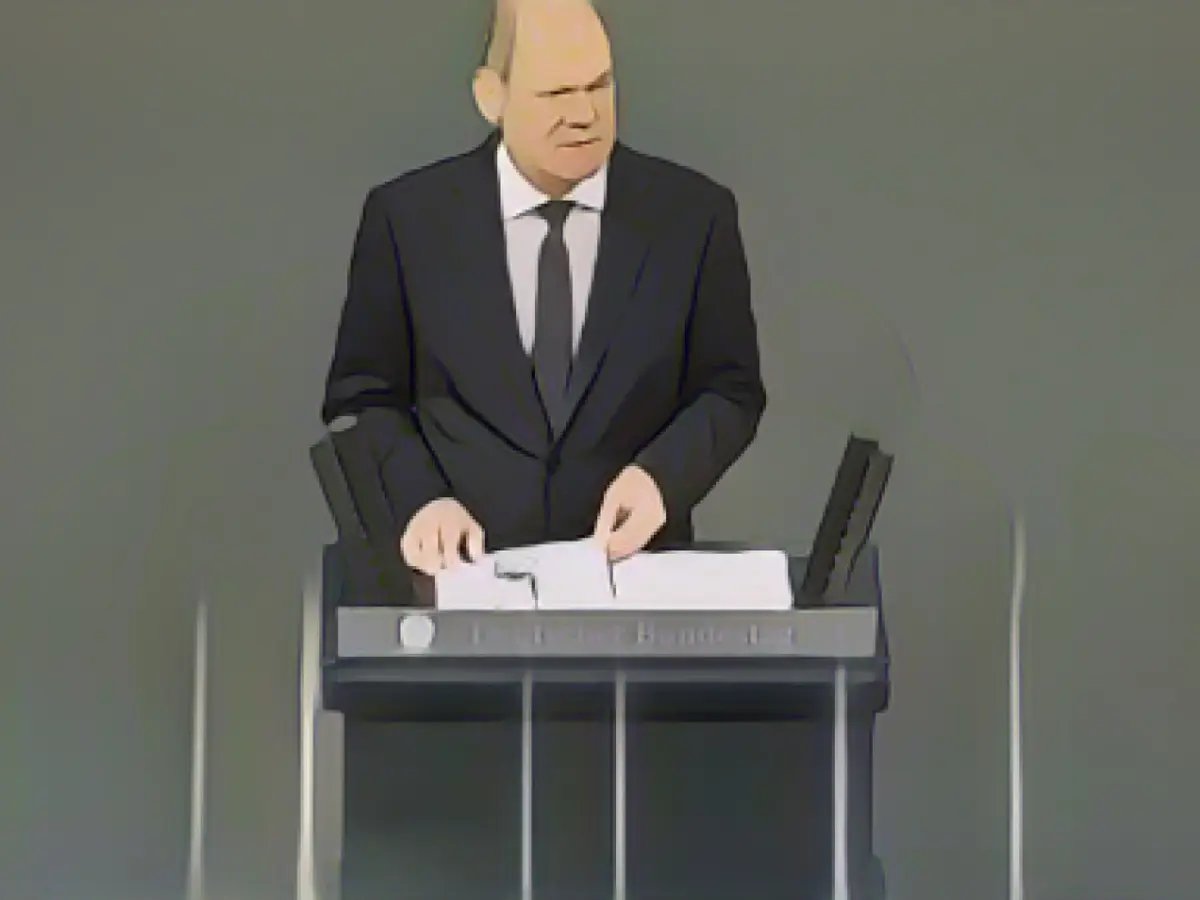Government Speaks Out Post-EU Summit in Bundestag
In the aftermath of the EU summit, prominent German politicians will face questions from MPs during the usual government questioning session at 2:45 pm. The Minister of the Chancellery, Wolfgang Schmidt (SPD), and the Minister of Agriculture, Cem Özdemir (Greens), will both participate. The Alternative for Germany (AfD) has requested a special hour on the Pisa study results at 5:10 pm. Subsequently, at 18:20, there will be an agreed debate on the 75th anniversary of the Universal Declaration of Human Rights.
Further Reading:
Unpacking Olaf Scholz's Address
At the EU summit, Chancellor Olaf Scholz addressed several pivotal issues, including Ukraine, Russia, and international conflicts. The following points underscore the key takeaways from Scholz's government declaration:
EU Summit Discussions
- Ukraine's Role in Peace Talks: European leaders emphasized Ukraine's importance in peace negotiations, stressing that any agreement cannot compromise Ukraine's interests.
- Peacekeeping Troops: The possibility of deploying peacekeeping troops to Ukraine was discussed. While the UK and France are open to the idea, there is uncertainty about other European nations' participation.
- Defense Spending: The need for increased defense spending was a central theme, with Trump urging EU allies to meet the 5% GDP defense expenditure target.
- NATO Membership: There was a disagreement between US and European leaders about Ukraine's potential NATO membership. European allies advocated for Ukraine's accession, while the US expressed reservations.
Chancellor Scholz's Statement in the Bundestag
- Ukraine's Sovereignty: Scholz reaffirmed Germany's support for Ukraine's sovereignty and democratic status, insisting that any peace process must respect Ukraine's territorial integrity.
- Rejection of Demilitarization: Scholz strongly opposed the idea of Ukraine's demilitarization, emphasizing that Ukraine needs a powerful defense force to protect itself.
- EU Membership: Scholz reiterated Germany's support for Ukraine's EU membership, rejecting the notion that Ukraine bore responsibility for the conflict.
- State of Emergency: Scholz urged the Bundestag to declare the war in Ukraine a state of emergency, highlighting its significance for Germany and European security.
- Defense Expenditure: Scholz advocated for substantial defense spending increases, proposing changes to the Stability and Growth Pact to exclude defense spending beyond the 2% NATO target.
The EU summit discussions and Chancellor Scholz's statement in the Bundestag underscore the importance of Ukraine's sovereignty, the need for a strong Ukrainian military, and the necessity of substantial defense spending to address the ongoing conflict and ensure regional security.








